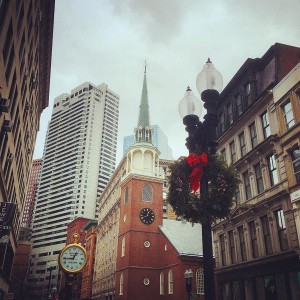
“Beer is proof God loves us and wants us to be happy”
Alexander Marcus and Kaitie Flores
Widely known and attributed to Benjamin Franklin, few know the truth behind this simple quote. Although it is known Franklin enjoyed beer, he was known foremost as a lover of wine. Initially paraphrased and intended to regard wine instead of beer, this quote does not originate with Franklin. According to a scholarly blog hosted by economist Fred Shapiro, the quote actually originates from a 1779 undated letter to the theologian, economist, philosopher, and writer Abbe Morellet in which Franklin while in France writes:
“We hear of the conversion of water into wine at the marriage in Cana, as of a miracle. But this conversion is, through the goodness of God, made every day before our eyes. Behold the rain which descends from heaven upon our vineyards, and which incorporates itself with the grapes to be changed into wine; a constant proof that God loves us, and loves to see us happy!”
There is limited information as to how this letter originally written in French evolves into the beer quote that is widely known today. Although Shapirio is able to trace the “beer version” as far back as 1996 to Beverage World, there is no evidence of Franklin using the quote. On the other hand, Franklin does express his love for beer in 1768 during a visit to a London printshop he had operated in forty years before. Upon rediscovering his old printing press, Franklin celebrated by ordering a gallon of porter to share with his fellow printers.
References
1. Franklin’s letter and translation from Memoirs of the Life and Writings of Benjamin Franklin, by his grandson, William Temple Franklin, 1819.
2. “Say What? Says Who? Benjamin Franklin on Beer – or Not.” Anchor Brewing. N.p., 29 Feb. 2012. Web. 29 Mar. 2016.
3. Shapiro, Fred. “Quotes Uncovered: Beer or Wine as Proof? – Freakonomics.”Freakonomics. N.p., 24 Mar. 2011. Web. 29 Mar. 2016.

